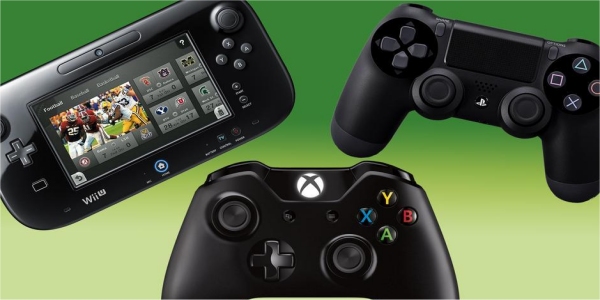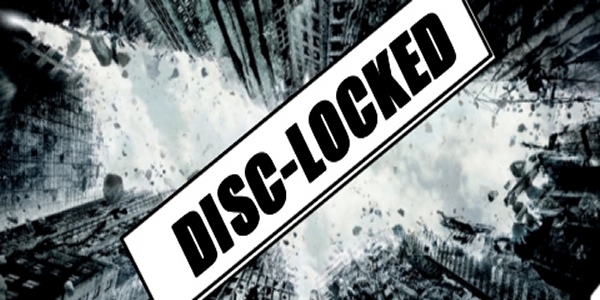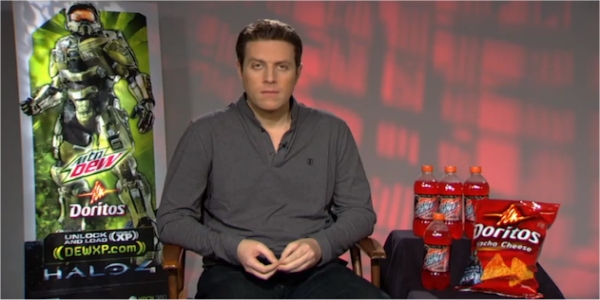Report: DLC Makes Just As Much Money As Used Game Sales

Your Daily Blend of Entertainment News
You are now subscribed
Your newsletter sign-up was successful
Well, we've been hearing all sorts of crazy things ever since the world found out about Microsoft's attempt at curbing the way the used games market works with the Xbox One. While a lot of Pro-Corporate White Knights have jumped up to defend the stripping away of consumer rights like they were falling in line to join the Nazi party circa 1921, there's a bit of a fallacy to the financial stake of the whole used games debate for a simple reason: It doesn't make as much money as we're led to believe.
So as many of you know, Microsoft's Xbox One is aimed at killing the traditional method of borrowing games, lending them out or renting them with their used game fees/policy/walled garden. This comes from publishers touting that the used game market is the death of gaming; that gamers can't get good single-player, multiplayer, original or unique games anymore because used games sales are just ravaging the market like a poodle tossed in a pin full of Viagra-filled dobermans.
In reality, if you look at where the money goes in the North American gaming market, it's not as used-games-equal-Hitler that a lot of misinformed corporate fanboys posing as video game journalists would have you believe.
In fact, the numbers I'm about to lay on you aren't even entirely new, but a lot of people just haven't been introduced to them. It's like that hot neighbor you never knew you had but wished you got to know better. So now it's time to enumerate the details in epic fashion for your earnest education.
So check it out, according to the NPD, did you know that the big bad evil used game market dipped by 17.1% in 2012 ? Yeah, the used game market is on the decline in retail because...check this out: more people are buying digital content. Digital content is on the rise and went up by 33% in 2012. That's right, digital games were up 16% over used game sales.
What's more is that this numerical pilates session reveals that Gamestop reported $1.59 billion in used game software revenue for 2011, and they've further reported $2.4 billion in 2012, for total pre-owned sales, including both hardware and software.
DLC on the other hand...whether it was disc-locked content, on-disc DLC, stripped and resold DLC, or honest DLC, it was selling like hotcakes.
Your Daily Blend of Entertainment News

So what did our new-found market friend bring us in the previous year? It was a massive 33.9% rise in revenue in 2012 over the previous year, where it was forecasted by EEDAR to surge past the $1 billion mark in 2012, and digital software DLC sales totaled $2.22 billion in revenue, while used games saw a 17.1% decline.
So why are these misinformed Pro-Corporate White Knights touting some sort of need to rally the forces against a potential coup d'etat from used games against the mainstream market? Used games have been around since the dawn of retail interactive gaming and now all of a sudden -- despite the fact that used game sales are in decline -- they need to be abolished from the market?
How come these PCWKs don't whine and bemoan the usurping of used games at the hands of DLC? Oh right...used games are a benefit to consumers and we can't possibly have gaming media batting on behalf of consumers by using facts, research or even standard financial statistics available within the industry itself.
For even more perspective, take into account that Electronic Arts' own digital revenue alone has seen a 45% increase over the previous year, accounting for $1.66 billion in 2012, as noted in their fiscal report for 2013.
Just for reference: Electronic Arts made $70 million more dollars in their digital game revenue in 2012 than GameStop made with their used game software sales in 2011.
So even though the used games retail hardware and software market combined makes up for $2.4 billion in revenue, digital content sales trails by only $200 million at the $2.2 billion mark. Simply put, if trends continue the way they have been going, fiscal 2014 results will see DLC trumping used game software sales all by its lonesome self, while used game revenue continues to decline.
What's more is that since you won't be able to carry over your Xbox 360 collection to your Xbox One, it would mean that you couldn't trade in your Xbox 360 console toward an Xbox One or else you wouldn't have a system to play your games on. The Xbox One's lack of backward compatibility could mean that GameStop's used game software and hardware revenue for 2013 could shrink drastically for adopters moving from the Xbox 360 to the Xbox One.
The same could also be said for the PS3 and those moving on to the PS4, given that backwards compatibility for physical discs will be nil and only available via Gaikai. This means that you would have to keep your PS3 console to play your games and you would have to keep your games if you didn't want to pay additional fees.
So what did we learn here today boys and girls? That the used games market is shrinking. That DLC is rising. That digital is rising. That Pro-Corporate White Knights want you to give up your last remaining rights so the big corporations can monopolize the way you play, what you play, where you play and how you play.
Good times all around. Too bad gaming media are too busy eating Doritos and drinking Mountain Dew to stick up for you.

(Main image courtesy of Mashable)
Staff Writer at CinemaBlend.

